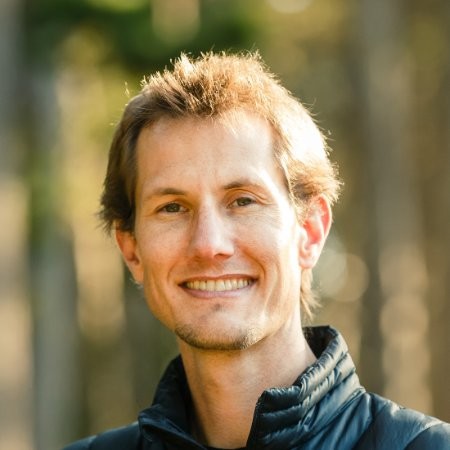
This is a weekly series of excerpts from the new book “The B Corp Handbook: How to Use Business as a Force for Good“ (Berrett-Koehler Publishers, October 2014). Click here to read the rest of the excerpts.
Here is the final installment of the six-week Quick Start Guide to becoming a Certified B Corporation.
As a refresher, week one focused on getting a baseline assessment of your social and environmental performance; week two focused on motivating and engaging your team; week three was about creating an action plan for B Corp certification; week four discussed how you can raise your B Corp assessment score; and week five was designed to help you power though the B Corp finish line.
Week Six: Celebrate and next steps
OBJECTIVE: By week six, you will have made significant progress toward improving your social and environmental performance. If you have met the requirements to become a Certified B Corporation, congratulations on joining one of the most exciting and dynamic movements in business!END RESULT: Celebrate, and congratulate your team for taking this journey.
1. Publicize your accomplishments
Use this opportunity to share your success widely. Write an article in your company newsletter about your journey, accomplishments, and long-term plan. Try convening a “lunch and learn” with your staff to share your progress and encourage other employees to get involved. You also can publicize your achievement on your website, to engage your external stakeholders.
2. Consider building a stronger foundation
In more than twenty-seven U.S. states, including Delaware, the community of Certified B Corporations has helped pass legislation in support of a new corporate form called the benefit corporation. The benefit corporation gives entrepreneurs the freedom to consider shareholders, workers, suppliers, community, and the environment when making decisions. This helps ensure that your social and environmental mission can better survive new management, new investors, or even new ownership. See the appendix for additional details on the difference between Certified B Corporations and benefit corporations.
3. Focus on continual improvement
Like many things in life, this is not a quick fix but a process of continual improvement. For example, does your team disband after this project is over? Will someone continue to be the internal champion? What other big picture goals do you want to strive for? Clarify how you and your team will continue to work toward achieving your social and environmental goals. Establish performance targets, and perhaps incentives, for achieving those ideal outcomes.
4. Check out the B Resources portal
A great next step for new B Corporations is to visit the B Corp Resources Portal. The resources portal has information on product and service discounts, tips on how to raise capital from mission-aligned investors, and a wide variety of tools to help you further improve your B Impact Assessment score.
Ryan's Tip: Want to get the most out of your B Corp certification? I strongly believe that the key to maximizing the value of your certification is to make your involvement with the B Corp community a “top three” business priority.For example, B Corps in any sector—service, wholesale, retail, or manufacturing—can generate an incredible amount of thought leadership, business development, employee engagement, marketing opportunity, and innovative partnership entirely through utilizing the power and resources inherent in the B Corp community.This commitment to your fellow B Corps can make the difference between getting a great deal of value from your B Corp certification and wondering why you aren’t getting more.
Image credit: B Lab
Ryan Honeyman helps organizations like Ben & Jerry's, Method, Klean Kanteen, Nutiva, and CleanWell become Certified B Corporations and maximize the value of their B Corp certification. He is the author of The B Corp Handbook: How to Use Business as a Force for Good (Berrett-Koehler Publishers, October 2014). To get exclusive updates and free resources about the B Corp movement, sign up for Ryan’s monthly newsletter. You can also visit honeymanconsulting.com or follow Ryan on Twitter:@honeymanconsult.

Ryan Honeyman is a sustainability consultant, executive coach, keynote speaker, and author of "The B Corp Handbook: How to Use Business as a Force for Good" (Berrett-Koehler Publishers, October 2014), the world’s first book on B Corporations.
Ryan helps businesses save money, improve employee satisfaction, and increase brand value by helping them maximize the value of their sustainability efforts, including helping companies certify and thrive as a B Corp. His clients include Ben & Jerry’s, Klean Kanteen, Nutiva, CleanWell, Exygy, and the Filene Research Institute.
Honeyman Sustainability Consulting, a Certified B Corporation, was recently honored—alongside Patagonia, Seventh Generation, New Belgium Brewery, GoLite, and Method—on the 2014 B Corp “Best for the Environment List,” which recognizes businesses that have scored in the top 10% of all B Corps worldwide for positive environmental impact.
Ryan has written articles for Utne Reader, TriplePundit, Sustainable Industries, and the Credit Union Times. He has also been a featured speaker at the Wharton School of Business at the University of Pennsylvania, the Hass School of Business at the University of California, Berkeley, San Francisco State University, Mills College, the California College of the Arts, the Sustainable Enterprise Conference, the Marin Renaissance Entrepreneurship Center, the New Sector Alliance, Nextspace, the Impact Hub Oakland, and the Impact Hub SoMa in San Francisco.
Ryan holds a B.A. from the University of California, Santa Cruz and a M.Sc. from the London School of Economics and Political Science.














